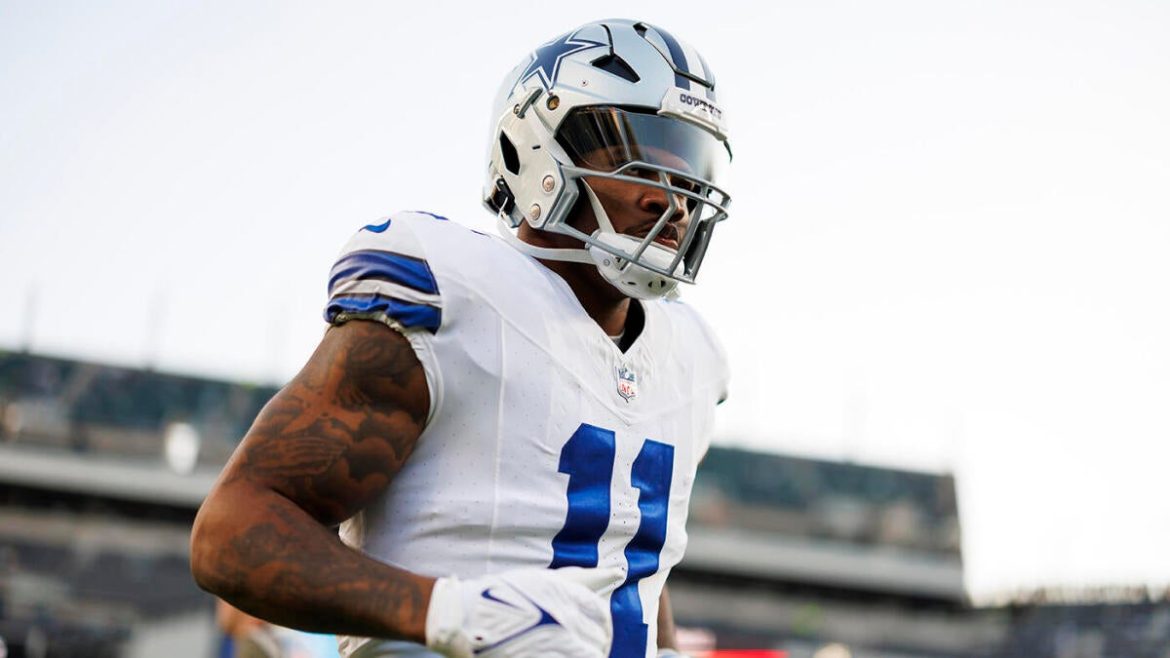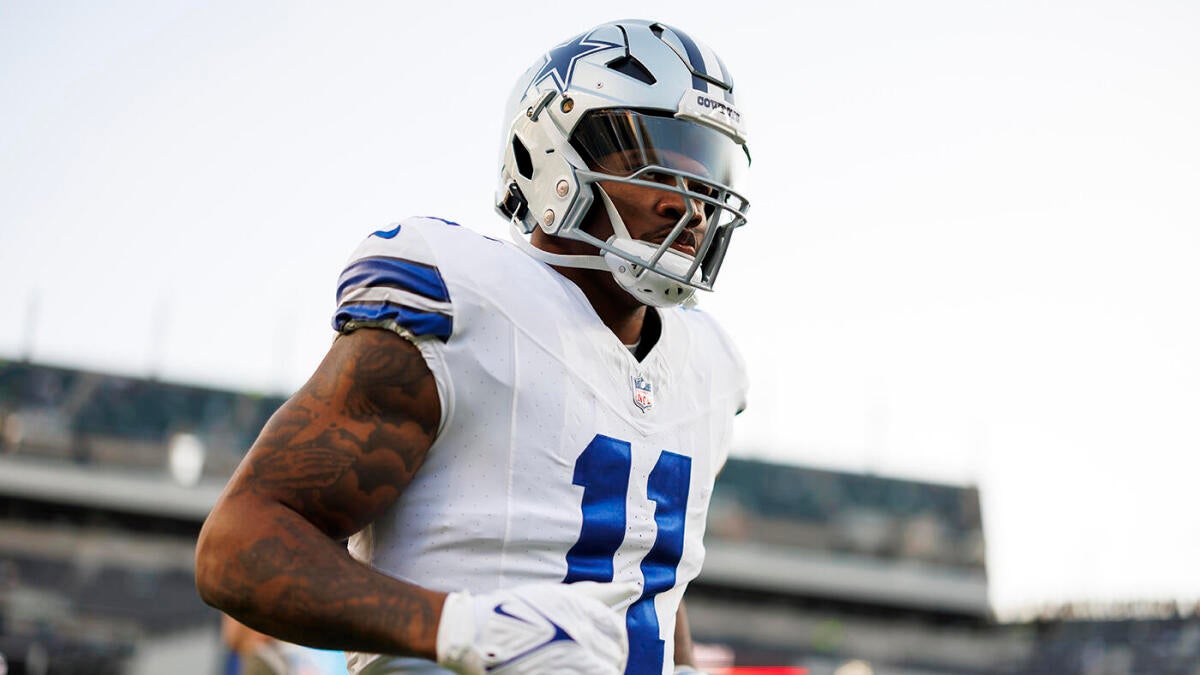The Micah Parsons Contract Dispute: A Critical Juncture for the Dallas Cowboys
The Dallas Cowboys, a franchise with a storied history and a fan base that expects nothing less than excellence, are navigating one of the most significant contract disputes in recent memory. At the center of this storm is Micah Parsons, a defensive force of nature whose impact on the field is as undeniable as his growing influence off it. The stalemate between Parsons and the Cowboys has reached a boiling point, with whispers of a potential trade request casting a shadow over the team’s future. This impasse is not just about dollars and cents; it’s about the soul of the franchise, the direction of the organization, and the delicate balance between player empowerment and team control.
The Negotiation Stalemate: A Breaking Point
The core of the dispute lies in the stalled contract negotiations. Parsons, entering the final year of his rookie deal, is seeking a contract that reflects his status as one of the NFL’s premier defensive players. His resume speaks for itself: three-time All-Pro, perennial Defensive Player of the Year candidate, and a defensive anchor capable of altering the trajectory of games. The Cowboys, however, have been reluctant to meet his demands, leading to a prolonged stalemate that has sown seeds of discontent.
Reports indicate that negotiations have been at a standstill since initial discussions in March. This lack of progress has created an atmosphere of uncertainty, with Parsons and his camp growing increasingly frustrated. The Cowboys’ front office, known for its cautious approach to financial commitments, appears to be grappling with the long-term implications of signing Parsons to a record-breaking deal. The result is a tense standoff that threatens to derail the team’s Super Bowl aspirations and damage the relationship between the organization and one of its brightest stars.
The Value vs. Investment Dilemma
The Cowboys find themselves in a precarious position, torn between acknowledging Parsons’ immense value and the financial realities of the NFL. Parsons is not just a player; he is a franchise cornerstone, a marketable asset whose presence elevates the team’s brand. His on-field dominance has made him a fan favorite and a key figure in the Cowboys’ resurgence. However, the Cowboys must also consider the salary cap constraints and the need to build a well-rounded roster.
The risk of overcommitting to one player is a real concern. The Cowboys have seen firsthand the pitfalls of tying up too much cap space in a single player, as evidenced by past contracts that have hindered the team’s flexibility. Yet, the alternative—losing Parsons—could be even more detrimental. His departure would leave a void in the defense that would be nearly impossible to fill, not to mention the potential fallout among other players who may question the organization’s commitment to its talent.
The Trade Request: A Nuclear Option
The escalation of the dispute has reportedly pushed Parsons to consider a trade request, a drastic measure that would signal a breakdown in the relationship between the player and the organization. While a trade is not an inevitability, the mere possibility underscores the severity of the situation. Parsons, like many modern NFL players, understands his leverage and is not afraid to use it. A trade request would put the Cowboys in a difficult position, forcing them to either meet his demands or risk losing him to another team.
The implications of a trade are far-reaching. For Parsons, it could mean a fresh start with a new organization, but it also carries risks. Publicly demanding a trade could alienate the Cowboys’ fan base and potentially limit his marketability. For the Cowboys, trading Parsons would be a significant blow, both on the field and in the locker room. It would send a message to other players that the organization is willing to part ways with its stars, which could have long-term repercussions for team morale and future negotiations.
The Jerry Jones Factor: Control and Consequences
At the heart of the dispute is Jerry Jones, the Cowboys’ owner and general manager, whose influence looms large over every major decision. Jones is known for his hands-on approach and his tendency to make bold, sometimes unpredictable moves. His involvement in contract negotiations has been a double-edged sword. On one hand, his passion for the team is unquestionable, and his willingness to invest in talent has been crucial to the Cowboys’ success. On the other hand, his negotiating tactics have sometimes been seen as inflexible and confrontational.
Reports suggest that Jones’ approach to the Parsons negotiations has contributed to the impasse. His tendency to discuss contract details publicly and his perceived reluctance to fully commit to Parsons’ demands have created an atmosphere of mistrust. A more collaborative and transparent approach could go a long way in bridging the gap between the two sides. Jones has the power to resolve this dispute, but he must be willing to listen, adapt, and ultimately, make the tough decisions that will secure Parsons’ future in Dallas.
The Human Element: Beyond the Contract
While the financial aspects of the dispute are undeniably important, it’s crucial not to lose sight of the human element. Micah Parsons is more than just a player; he is a young man with aspirations, ambitions, and a desire to be valued and respected. The Cowboys’ handling of this situation will not only impact Parsons’ future but also send a message to other players about the organization’s commitment to its talent.
Treating Parsons with fairness, transparency, and respect is essential to maintaining a healthy and productive relationship. The Cowboys have a unique opportunity to demonstrate their commitment to winning and to building a culture of trust and mutual respect. Failure to do so could result in the loss of a generational talent and damage the team’s reputation, making it more difficult to attract and retain top players in the future.
The Ripple Effect: Implications for the Cowboys’ Future
The outcome of the Micah Parsons contract dispute will have far-reaching implications for the Dallas Cowboys. Losing Parsons would create a significant void in the defense, one that would be difficult to fill, even with a strong draft class or free agency acquisitions. His absence would not only diminish the team’s Super Bowl aspirations but also send a negative message to other players, potentially hindering the Cowboys’ ability to attract and retain top talent.
Conversely, resolving the dispute and signing Parsons to a long-term contract would solidify his place as the cornerstone of the Cowboys’ defense for years to come. It would also demonstrate the organization’s commitment to winning and provide a much-needed boost to morale. The Cowboys’ future hinges, in many ways, on their ability to navigate this challenging situation and find a resolution that benefits both the team and its star player.
A Crossroads: Choosing the Right Path
The Dallas Cowboys stand at a critical juncture. They can continue down the path of intransigence and risk losing a generational talent, or they can embrace a more collaborative and flexible approach and secure Parsons’ future in Dallas. The choice is theirs, and the consequences will be felt for years to come. The clock is ticking, and the pressure is mounting. The fate of Micah Parsons, and perhaps the Cowboys’ Super Bowl aspirations, hangs in the balance.
The Unwritten Chapter: A Resolution?
The saga surrounding Micah Parsons and the Dallas Cowboys is far from over. Whether it culminates in a mutually agreeable contract extension, a blockbuster trade, or an acrimonious departure remains to be seen. One thing is certain: the resolution will be a defining moment for both Parsons and the Cowboys, shaping their respective futures and leaving an indelible mark on the landscape of the NFL. The Cowboys have the opportunity to make a statement about their commitment to winning and to building a culture of trust and mutual respect. The ball is in their court, and the world is watching.





